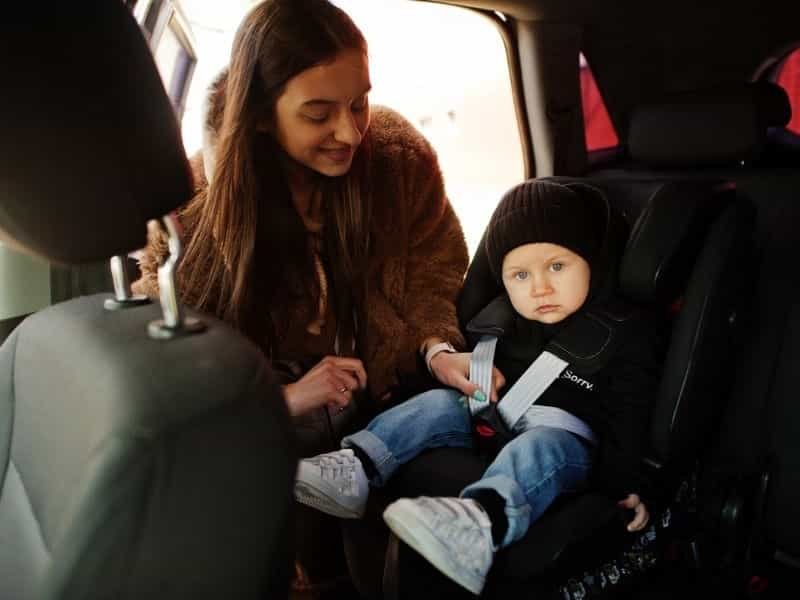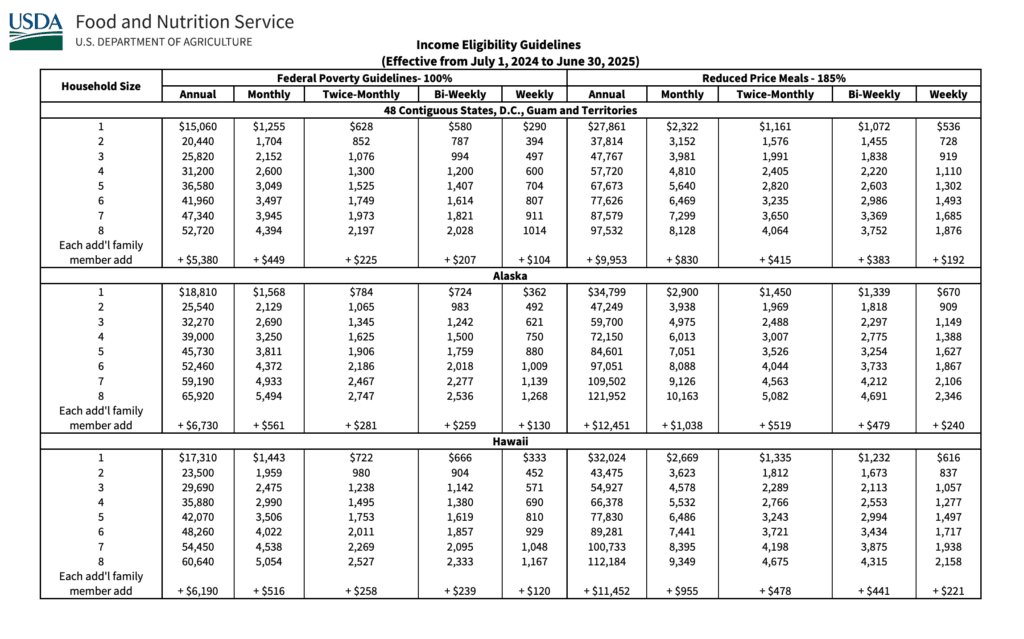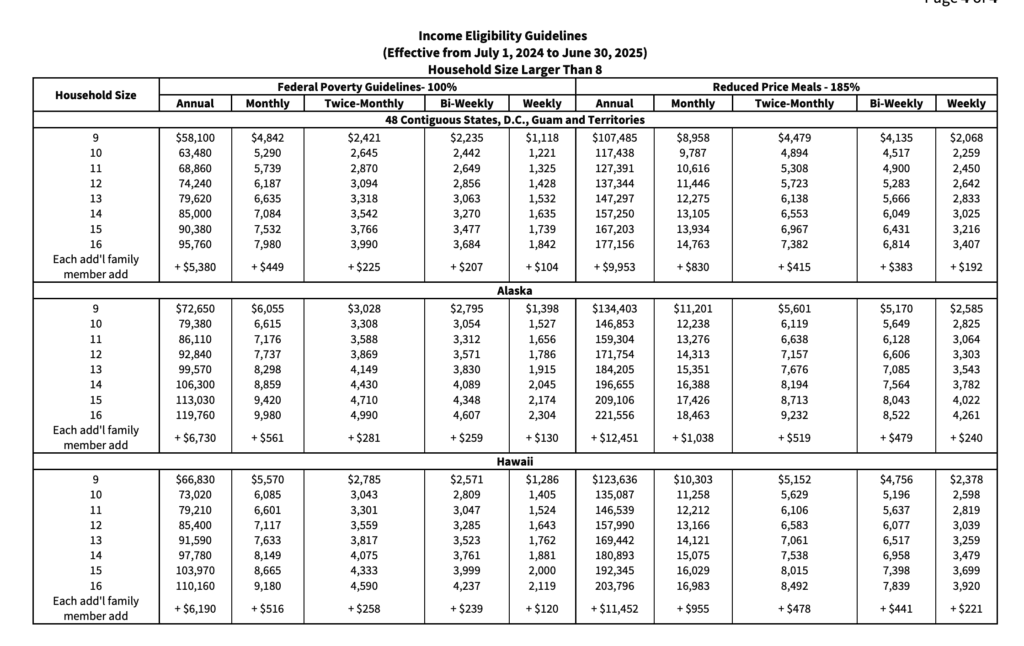Hello! You’ve reached the right spot if you’re a parent having difficulty paying for a car seat or simply wanting to understand more about the WIC free car seat initiative. Having explored the intricacies of parental assistance programs, I’m here to explain everything you should know about obtaining a free car seat with WIC.
Car seats are extremely important for ensuring our children’s safety during travel, but let’s face it—they can be really pricey. A quality car seat may cost from $100 to $300, representing a significant cost for families with limited financial means. That’s when the WIC program becomes a complete lifesaver.
The WIC Free Car Seat Program is a project that works alongside community partners, health organizations, and local agencies to supply free car seats to eligible families. This initiative highlights the significance of child passenger safety and aims to decrease the injuries and fatalities resulting from incorrect car seat usage.
What is the WIC Program?
Women, Infants, and Children, or WIC, is a federally financed nutritional aid program offering much more than food assistance. It is intended to assist low-income new moms, pregnant women, and families with small children. The program provides vital resources like education, health care referrals, free car seats in several areas, and assistance with groceries.
READ MORE: 13 Ways to Free Greyhound Bus Tickets for Homeless
Benefits of the WIC Car Seat Program
What makes this program so fantastic? Let me explain:
- Financial Assistance For low-income families, saving $100 to $300 for a car seat is a significant savings.
- Safety Instruction: You’re learning to use it properly and get a complimentary seat.
- Decreased Risk of Child Injury When appropriately used, car seats can lower the risk of child fatalities by up to 71%.
How does the WIC Free Car Seat Program work?
- Eligibility: You must participate in the WIC program to be eligible for the free car seat program. Residency in the state where you apply, income, and nutritional risk determine eligibility.
- Application Procedure: If you qualify, visit your neighbourhood WIC office to apply for a car seat voucher. The voucher can be used to get a free car seat at participating locations.
- Car Seat Options: The program usually provides convertible car seats that can be used from infancy to toddlerhood to ensure your child’s long-term safety.

How to Find a Free Infant Car Seat for Low-Income Families?
Low-income families can receive free car seats through specific programs. Local family-supporting groups might offer programs or point you toward one. Your caseworker can help you find resources whether you are on Medicaid, WIC, cash assistance, or food stamps.
Verify whether your voucher will help you before using any exchange scheme. Swap programs may be offered by police agencies, fire stations, pediatricians’ offices, and others. These programs give you an equal swap if the seat is damaged or your child grows.
READ MORE: Free Cars for Single Mothers – A Great Opportunity
Eligibility Requirements to get a Free Car Seat with WIC
Let’s explore who is eligible to receive a complimentary car seat through the WIC program. The demands aren’t overly complex, but you must fulfill certain specific conditions:
1. Income Limits Most WIC programs mandate that your household income be at or below 185% of the federal poverty line. This implies that you are likely to be eligible if you’re facing financial difficulties.
2 Pregnancy or Young Children You generally need to be:
- Expecting
- Possess a baby younger than 12 months.
- Possess a child who is younger than 5 years.
3. Residency and Nationality
- Must be a resident of the U.S.
- You must reside in the state in which you are applying.
4. Nutritional Risk WIC examines your nutritional condition as well. This doesn’t imply you need to be undernourished, but they seek to confirm that you could gain from their assistance.
Categorical Requirement
The WIC program is designed to serve certain categories of women, infants and children. Therefore, the following individuals are considered categorically eligible for WIC:
- Pregnant women (throughout pregnancy)
- Breastfeeding women (up to infant’s first birthday)
- Non-breastfeeding postpartum women (up to 6 months after pregnancy ends)
- Infants
- Children (through their fifth birthday)
Residential Requirement
- Applicants must live in the state in which they apply.
- Applicants served in areas where WIC is administered by an Indian Tribal Organization (ITO) must meet residency requirements established by the ITO.
- At state agency option, applicants may be required to live in a local service area and apply at a WIC clinic that serves that area.
- Applicants are not required to live in the state or local service area for a certain amount of time in order to meet the WIC residency requirement.
Income Requirement
To be eligible for WIC, applicants must have income at or below an income level or standard set by the state agency or be determined automatically income-eligible based on participation in certain programs.
- Income Standard.:The state agency’s income standard must be between 100 percent of the federal poverty guidelines (issued each year by the Department of Health and Human Services) but cannot more than 185 percent of the federal poverty income guidelines.
WIC Income Eligibility Guidelines

WIC Income Eligibility Guidelines-Household Size Larger Than 8

- Automatic Income Eligibility. Certain applicants can be determined income-eligible for WIC based on their participation in certain programs. These included individuals:
- eligible to receive SNAP benefits, Medicaid, for Temporary Assistance for Needy Families (TANF, formerly known as AFDC, Aid to Families with Dependent Children),
- in which certain family members are eligible to receive Medicaid or TANF, or
- at state agency option, individuals that are eligible to participate in certain other state-administered programs.
Nutrition Assessment Requirement
Applicants must be seen by a health professional such as a physician, nurse, or nutritionist who must determine whether the individual is at nutrition risk. In many cases, this is done in the WIC clinic at no cost to the applicant. However, this information can be obtained from another health professional such as the applicant’s physician.
“Nutrition risk” means that an individual has medical-based or dietary-based conditions. Examples of medical-based conditions include anaemia (low blood levels), being underweight, or a history of poor pregnancy outcomes. A dietary-based condition includes, for example, a poor diet.
At a minimum, the applicant’s height and weight must be measured, and bloodwork was taken to check for anaemia. An applicant must have at least one of the medical or dietary conditions on the state’s list of WIC nutrition risk criteria.
How to Apply for a WIC Free Car Seat Program
Getting a free car seat through WIC isn’t as difficult as you may believe. Here’s a guide with steps to follow:
Step 1: Collect Documentation
You must bring:
- Verification of earnings (payment statements, tax documents)
- Verification of residence
- Certificates of birth for children
- Identification issued by the government
- Evidence of pregnancy (if relevant)
Step 2: Locate Your Nearby WIC Office
Each state has several WIC sites. You can:
- Visit your state’s health department website.
- Dial 211 for information about local resources.
- Search Google for “WIC location close to me”
Step 3: Set Up an Appointment
The majority of WIC offices necessitate a face-to-face appointment. In this gathering, they will:
- Confirm your eligibility
- Perform a dietary evaluation.
- Talk about the car seat initiative.
Step 4: Choosing and Learning About Car Seats
If accepted, you will generally:
- Obtain a coupon for a free car seat.
- Participate in a car seat safety workshop.
- Master correct installation methods
Organizations that offer Free Car Seat with WIC
Locating a complimentary WIC car seat generally means contacting programs that partner with WIC or various community organizations.
Here’s a guide to assist you in finding free car seats:
WIC Centers
Numerous Women, Infants, and Children’s (WIC) offices provide complimentary car seats to assist families. Contact your nearest WIC office and inquire if they offer a car seat distribution program or can direct you to one.
Community Health Agencies
County or city health departments frequently collaborate with organizations to offer qualifying families free or affordable car seats. Included in the program, they might also provide classes on car seat safety.
Secure Children Globally
Safe Kids is a nationwide organization that provides education on car seat safety and occasionally gives free car seats to families requiring assistance. Check their website or contact your nearby chapter for additional details.
Medical Facilities and Child Physicians
Certain hospitals and paediatricians collaborate with nonprofit groups to provide complimentary car seats to low-income families. Inquire whether this service can be accessed during your prenatal or postnatal appointment.
Charity Organizations
Salvation Army and Goodwill: These groups occasionally offer free car seat initiatives or can direct you to additional resources nearby.
United Way: Call 211 to access local United Way services. They can assist you in finding programs that provide free car seats.
Nonprofit Programs
Groups such as Baby2Baby, Cribs for Kids, and Buckle Up for Life can collaborate with communities to supply needy families with essential baby products, including car seats.
Programs Based on Faith
Numerous churches or faith-based groups provide complimentary car seats as a component of their family assistance programs. Inquire with nearby churches or charitable organizations.
Social Networks and Community Connections
Become a member of local parenting groups on Facebook or community platforms such as Nextdoor. Individuals frequently offer resources or donate items, such as car seats, at no cost.
Programs at the State or Regional Level
Numerous states offer dedicated child safety programs that supply complimentary car seats. Sure! Please provide the text you would like me to paraphrase.
California: Child safety seat initiatives via local community centers or health agencies.
Texas: Several fire stations offer complimentary car seats along with installation training.
Points to Keep in Mind:
- Most programs will necessitate evidence of low-income qualification (e.g., WIC enrollment, Medicaid coverage, or SNAP involvement).
- You might have to take a car seat safety course or watch a demonstration on correct installation to obtain the seat.
- Inform me of your location, and I can assist you in finding specific resources!
FAQs: Free Car Seat with WIC for Low-Income Families
1. Does WIC provide free car seats?
WIC does not directly provide free car seats, but many WIC offices partner with local programs, hospitals, and safety organizations offering free or discounted car seats to low-income families.
2. Who is eligible for a free car seat through WIC?
Eligibility varies by state and program, but typically, you must:
- Be enrolled in WIC or another government assistance program (like Medicaid or SNAP).
- Have a low income that meets program requirements.
- Attend a car seat safety class or training (if required).
3. How can I apply for a free car seat?
To apply:
- Contact your local WIC office to ask about car seat programs.
- Check with local hospitals, fire departments, or non-profit organizations.
- Enroll in a car seat safety class if required.
4. What type of car seat will I receive?
The type of car seat depends on the child’s age and weight. Programs usually provide:
- Infant car seats (for newborns and small babies).
- Convertible car seats (for toddlers and growing children).
- Booster seats (for older children who meet weight and height requirements).
5. Do I need to take a class to receive a free car seat?
Many programs require parents to attend a short car seat safety class to learn proper installation and usage before receiving a free seat.
6. Can I get a replacement car seat if mine is expired or damaged?
Some programs offer replacement car seats if yours is expired, recalled, or no longer safe to use. Check with your local WIC office or car seat program for details.
7. Where else can I get a free or low-cost car seat?
If WIC does not offer free car seats in your area, try:
- Local health departments.
- Safe Kids Worldwide organizations.
- State or county child safety programs.
- Hospitals or pediatric clinics.
- Community charities and non-profits.
8. Can I sell or give away a free car seat I received?
No, free car seats provided through assistance programs are meant for your child’s safety and should not be resold or given away.
9. How do I find out if my state offers free car seats through WIC?
Visit your state’s WIC website, call your local WIC office, or check with nearby child safety organizations.
10. What should I do if I don’t qualify for a free car seat?
If you don’t qualify, look for:
- Low-cost car seat programs.
- Second-hand car seats from trusted sources (check expiration dates and safety recalls).
- Payment assistance through local charities.
Final Verdict
The WIC car seat initiative is essential for single mothers and low-income families. It guarantees that their children are safe during travel. Utilizing this program allows you to give your child essential protection without causing financial stress. Don’t hesitate to contact your nearby WIC office for additional details and support.



